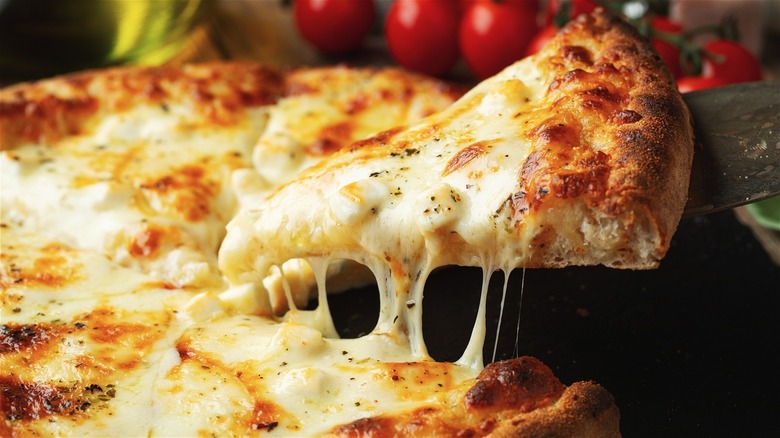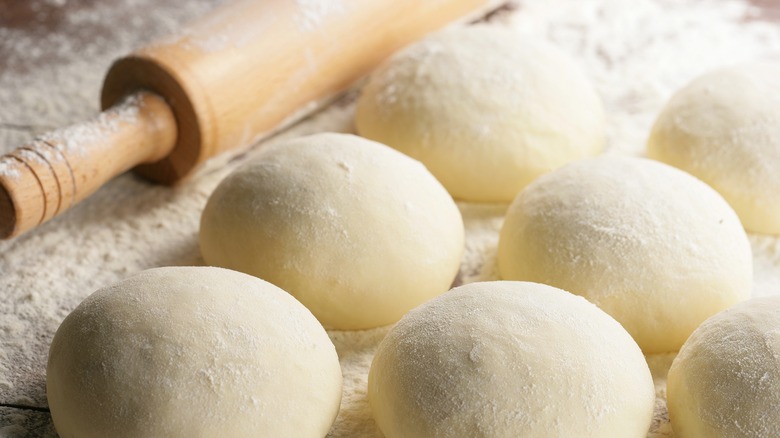Expert Explains What Type Of Flour Is The Absolute Best For Making Pizza
Ask a connoisseur about the makings of a great pizza, and the answer will most likely begin with the crust. A well made dough is the foundation of a pizza that hits the spot, but it can also be the trickiest part of the pie to make. Before the mastery of the dough-tossing technique comes the selection of flour, which can be a challenge in itself since there are so many options — each of which will give your crust a different consistency.
Chef Michael Peterson, a Culinary Institute of America alumnus who trained in Paris at Le Grenadine, spoke to Mashed about the best kind of flour one can use for pizza dough. According to him, the flour for the job is one with high protein content, as protein can make and (quite literally) break pizza crust.
You could make pizza dough with any flour you like, but your choice could be the difference between a crispy, bubbly, and pleasantly chewy crust versus a flat and dense pie that barely resembles a pizza. "Flour with lower protein content — cake flour, for instance — doesn't have enough protein to support a pizza dough," Peterson says. When you add water to your pizza dough recipe, it reacts with the proteins in the flour to make gluten. "High protein flour creates more gluten, which adds structure, stretchiness, and strength to the dough," Peterson explains. For the perfect balance of proteins, as well as aromas and aesthetics, he uses a blend of 00 flour, bread flour, and semolina.
No two flours are created equal
Why the blend of flours? When it comes to pizza making, Italian 00 flour is among the most popular, especially for Neapolitan pizza. According to Peterson, while 00 flour is best for pizzas cooked at high temperatures (as in, with a real pizza oven), bread flour is ideal for baking in a regular oven, while semolina "adds a layer of richness, color, and flavor that people love." These all have a protein content of around 12 to 13%, compared to all-purpose flour's 10 to 11%.
Besides the flour, the amount of water in the dough and the temperature at which the pizza is cooked also determine the texture of the crust. "High hydration creates a dough that is light, fluffy, and crispy. Low hydration creates a dough that is denser, less crispy, and which typically needs more time in the oven," Peterson says, adding that intensely high temperatures also create the puffiness and char people love in a proper pizza.
Finally, kneading pizza dough thoroughly and letting it rest for a few hours also helps the gluten to develop, meaning you'll just need to be patient for a few hours before you bake your expertly made crust — hot and fast.

